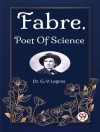Felicia Hemans (1793-1835), one of the most influential and widely-read poets of the nineteenth century, wrote Records of Woman in 1828 at the height of her long career. In the series, which includes nineteen poems about exemplary lives, Hemans explores what it means to be a woman, challenging traditional beliefs while at the same time reinforcing persistent stereotypes. Her work celebrates the lives, events, and imagined thoughts of unremembered women from different cultures and time periods whose deeds show nobility of spirit and inner strength. In her introduction, Paula Feldman examines how Hemans’s poetry shaped and was shaped by nineteenth-century literary tastes, and she reconsiders the aesthetic value of Hemans’s work and the current understanding of the nature of Romanticism.
About the author
Paula R. Feldman, professor of English at the University of South Carolina, is the editor of British Women Poets of the Romantic Era and co-editor of Romantic Women Writers and The Journals of Mary Shelley.












